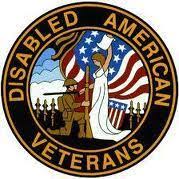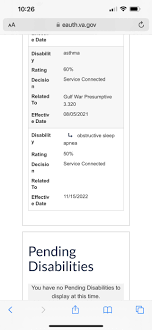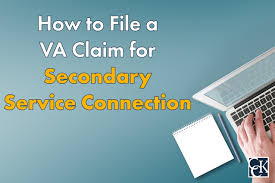Title: Unlocking the Benefits: A Guide to Disabled American Veterans Benefits
Introduction:
Disabled American veterans have selflessly served our nation, sacrificing their physical and mental well-being in the process. In recognition of their service and the challenges they face, there are a variety of benefits and resources available to support them. This article aims to provide a comprehensive guide to disabled American veterans benefits, ensuring they receive the care and assistance they deserve.
Disability Compensation:
One of the primary benefits available to disabled veterans is disability compensation. This financial assistance is provided to compensate for disabilities incurred or aggravated during military service. The compensation amount depends on the severity of the disability and its impact on daily life.
Healthcare Services:
Disabled veterans are eligible for comprehensive healthcare services through the Department of Veterans Affairs (VA). These services include medical treatment, rehabilitation programs, mental health support, and access to specialized facilities such as prosthetics clinics.
Vocational Rehabilitation and Employment (VR&E):
To assist disabled veterans in transitioning back into civilian life, VR&E programs offer vocational counseling, job training, resume building, and employment placement assistance. These programs aim to enhance employability and ensure a smooth transition into meaningful employment opportunities.
Home Loan Guarantees:
The VA provides home loan guarantees that enable disabled veterans to secure favorable mortgage terms or obtain grants for adapting their homes to accommodate their disabilities. These benefits help improve accessibility and enhance their quality of life.
Dependents’ Educational Assistance (DEA):
DEA benefits extend educational opportunities to dependents of disabled veterans who have a permanent and total service-connected disability or died due to service-related causes. These benefits cover tuition fees, books, housing allowances, and other educational expenses.
Automobile Allowance:
Disabled veterans with limited mobility may be eligible for an automobile allowance grant from the VA. This grant assists in purchasing a specially equipped vehicle or adapting an existing vehicle for easier accessibility.
Adaptive Sports Programs:
To promote physical fitness and overall well-being, the VA offers adaptive sports programs tailored to disabled veterans. These programs provide opportunities for participation in various sports, fostering camaraderie and aiding in rehabilitation.
Conclusion:
Disabled American veterans have earned the right to access a range of benefits and resources designed to support their unique needs. From disability compensation to healthcare services, vocational rehabilitation, educational assistance, and more, these benefits aim to enhance their quality of life and facilitate a successful transition into civilian life.
It is crucial for disabled veterans to be aware of the benefits available to them and how to access them. By utilizing these resources, they can receive the care, support, and opportunities they deserve as a result of their honorable service.
Commonly Asked Questions about Disabled American Veterans Benefits
- What benefits do 70 percent disabled veterans get?
- What extra benefits do disabled veterans get?
- Will VA disability rates increase in 2023?
- What benefits does a 60 disabled veteran get?
What benefits do 70 percent disabled veterans get?
70 percent disabled veterans are eligible for a range of benefits provided by the Department of Veterans Affairs (VA). Some of the key benefits available to them include:
- Disability Compensation: 70 percent disabled veterans receive monthly disability compensation payments. The amount is based on the severity of their disability rating and is intended to compensate for the impact on their daily life and ability to work.
- Healthcare Services: They have access to comprehensive healthcare services through the VA, including medical treatment, specialized clinics, mental health support, prescription medications, and rehabilitative services.
- Vocational Rehabilitation and Employment (VR&E): Disabled veterans at this rating level may qualify for VR&E programs. These programs offer vocational counseling, job training, resume building assistance, and employment placement services to enhance their employability and facilitate successful reintegration into the workforce.
- Education Benefits: 70 percent disabled veterans may be eligible for education benefits under the Post-9/11 GI Bill or other VA education programs. These benefits can cover tuition fees, provide a monthly housing allowance, offer a stipend for books and supplies, and even allow for transferability of benefits to dependents in some cases.
- Home Loan Guarantees: Disabled veterans with a 70 percent disability rating may be eligible for favorable terms on VA home loans or grants to adapt their homes to accommodate their disabilities.
- Automobile Allowance: In some cases, disabled veterans at this rating level may qualify for an automobile allowance grant from the VA. This grant helps cover the cost of purchasing a specially equipped vehicle or modifying an existing vehicle to improve accessibility.
- Dependents’ Educational Assistance (DEA): Dependents of 70 percent disabled veterans who have a permanent and total service-connected disability or died due to service-related causes may be eligible for DEA benefits. These benefits provide educational assistance covering tuition fees, housing allowances, books, and other educational expenses.
It’s important for 70 percent disabled veterans to consult with the VA or a Veterans Service Officer to determine their specific eligibility for these benefits and to understand the application process.
What extra benefits do disabled veterans get?
In addition to the benefits mentioned earlier, disabled veterans may be eligible for several additional benefits. These benefits are designed to provide further support and assistance to improve their quality of life. Here are some of the extra benefits available:
- Special Monthly Compensation (SMC): SMC is a higher level of compensation available to veterans with severe disabilities or specific circumstances, such as loss of limb(s), blindness, or the need for aid and attendance.
- Adapted Housing Grants: Disabled veterans may qualify for grants to adapt their homes or purchase specially adapted housing to accommodate their disabilities. These grants can cover modifications like wheelchair ramps, widened doorways, accessible bathrooms, and other necessary changes.
- Automobile and Vehicle Modification Grants: Veterans with certain service-connected disabilities that impact mobility may be eligible for grants to purchase adaptive vehicles or make modifications to existing vehicles for easier accessibility.
- Clothing Allowance: Veterans with service-connected disabilities that require the use of prosthetic devices or who have specific skin conditions due to their disability may receive an annual clothing allowance.
- Dependents’ Educational Assistance (DEA) Extension: In some cases, disabled veterans who are unable to use their DEA benefits themselves can transfer these educational assistance benefits to their dependents for them to pursue higher education.
- Concurrent Retirement and Disability Pay (CRDP): Retired veterans who receive military retirement pay and also have a VA disability rating of at least 50% may be eligible for CRDP, which allows them to receive both retirement pay and disability compensation concurrently.
- Tax Exemptions: Disabled veterans may qualify for state tax exemptions or reductions on property taxes or income taxes based on their disability rating and state laws.
It’s important for disabled veterans to consult with the Department of Veterans Affairs (VA) or a Veterans Service Officer (VSO) in their area to determine their eligibility for these extra benefits based on their specific circumstances. The VA will provide guidance and assistance throughout the application process to ensure veterans receive the benefits they are entitled to.
Will VA disability rates increase in 2023?
The Department of Veterans Affairs does not currently have any plans to increase VA disability rates in 2023. The VA typically reviews and adjusts the rates each year, so any potential increases in 2023 will be determined at a later date.
What benefits does a 60 disabled veteran get?
A disabled veteran rated at 60% disability by the Department of Veterans Affairs (VA) is eligible for a range of benefits. Here are some key benefits that a 60% disabled veteran may be entitled to:
- Disability Compensation: As a 60% disabled veteran, you are eligible for monthly disability compensation payments. The amount received depends on your disability rating and the number of dependents you have.
- Healthcare Services: Disabled veterans with a 60% disability rating are eligible for comprehensive healthcare services through the VA. This includes medical treatment, medications, specialized care, mental health support, and access to VA hospitals and clinics.
- Vocational Rehabilitation and Employment (VR&E): VR&E programs provide vocational counseling, job training, resume building, and employment placement assistance to help disabled veterans transition back into the workforce or explore new career opportunities.
- Education Benefits: You may be eligible for educational assistance through programs such as the Post-9/11 GI Bill or Vocational Rehabilitation and Employment (VR&E) program. These benefits can cover tuition fees, books, housing allowances, and other educational expenses.
- Home Loan Guarantees: Disabled veterans with a 60% disability rating may qualify for VA home loan guarantees, which can provide favorable mortgage terms or grants for adapting homes to accommodate their disabilities.
- Automobile Allowance: If your disability limits your mobility significantly, you may be eligible for an automobile allowance grant from the VA. This grant assists in purchasing a specially equipped vehicle or adapting an existing vehicle for easier accessibility.
- Dependents’ Educational Assistance (DEA): DEA benefits extend educational opportunities to dependents of disabled veterans with a permanent and total service-connected disability rating or who died due to service-related causes.
- Commissary and Exchange Privileges: A 60% disabled veteran receives commissary privileges allowing access to discounted groceries at military commissaries and exchange privileges to access discounted goods and services at military exchanges.
It’s important to note that eligibility and specific benefits may vary based on individual circumstances. To determine your eligibility and explore the benefits in detail, it is recommended to contact the VA or visit their official website for the most accurate and up-to-date information.




